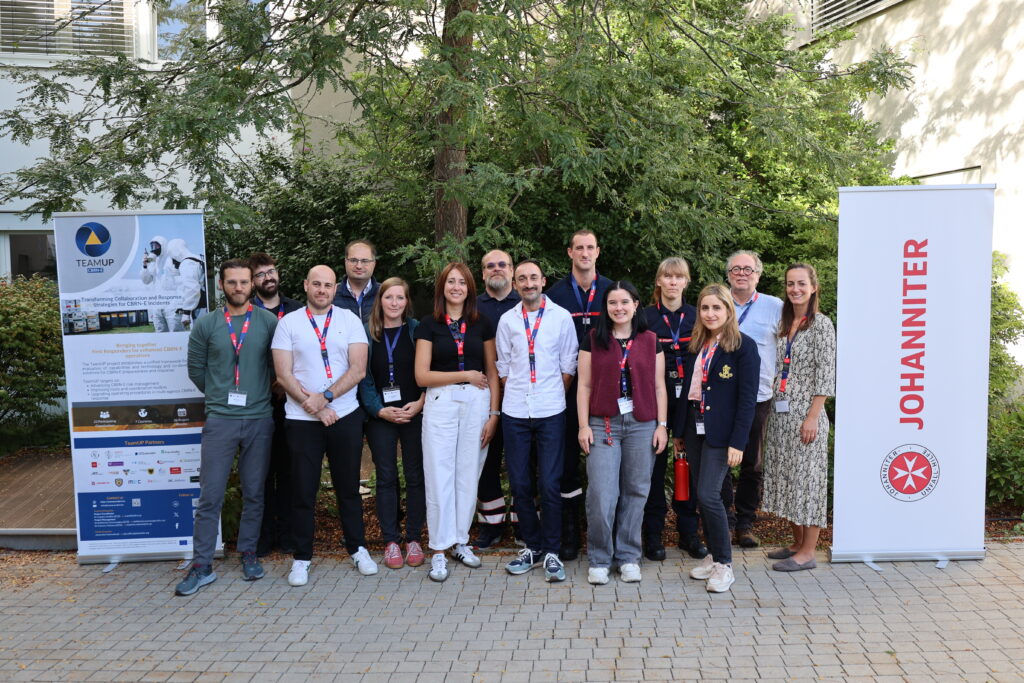Launch of the Europe-wide Laboratory Test of the EU project TeamUp in Vienna: focus on improving emergency organizations’ preparedness for CBRN-E threats.
Chemical, biological, radiological, nuclear and explosive (CBRN-E) threats rank among the most complex emergency scenarios for fire brigades, police and rescue services. They require specialized knowledge, standardized procedures, and state-of-the-art technology. The first Europe-wide Laboratory Test of the TeamUP project has been carried out in Vienna. The goal is to test innovative technologies and training approaches under realistic conditions, thereby sustainably increasing the safety of first responders and the general public.
Kick-off in Vienna: 17th – 19th September
From 17th to 19th September 2025, the first of a total of 14 planned Laboratory Tests took place at the Johanniter Center Nord in Vienna. The consortium lead (ICCS) and members from Belgium (VESTA), the UK (BIOX), France (SDMIS), and Greece (HMOD) joined Austrian emergency organisations to trial new procedures and technologies for detecting, identifying, and countering CBRN-E materials.
Over the three days the participants used different testing modes, from software solutions and simulators to digital field tools, on-site exercises, and drone technology. The focus is on a step-by-step approach:
- Detection of the threat
- Triage of affected individuals
- Decontamination prior to medical treatment
Protection for first responders and the public
A central objective of TeamUp is to improve protection for first responders. In CBRN-E scenarios, they are often called to provide aid without sufficient training or awareness of the health risks they themselves face. The project is therefore also developing systems for monitoring responders’ health and linking them to triage and decontamination procedures.
“We are pleased to launch the Laboratory Test in Vienna as the starting point for a series of trials across Europe. Only by testing technologies and procedures under realistic conditions can we ensure that emergency personnel are as well-prepared as possible in real incidents. This greatly enhances public safety,” explains Georg Aumayr, Head of Research at Johanniter, who is responsible for the two tests in Vienna.

European cooperation for greater resilience
TeamUp brings together 23 partner organizations from seven EU countries – from research institutes and public authorities to emergency services. Different technologies will be tested at every site, and not all technologies will be tested simultaneously in this first round of tests. What matters in this phase is the close cooperation across organisational and national boundaries.
In addition to developing technologies, the project places strong emphasis on standardized procedures and cross-organizational training programs intended for use throughout Europe. At the same time, TeamUp aims to raise public awareness of CBRN-E risks and thus strengthen societal resilience.
